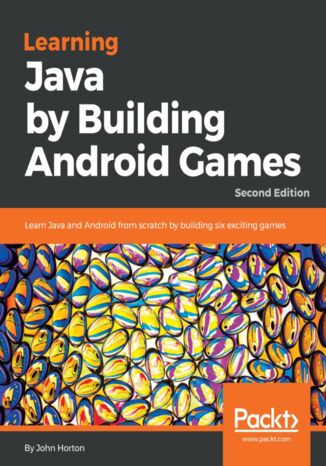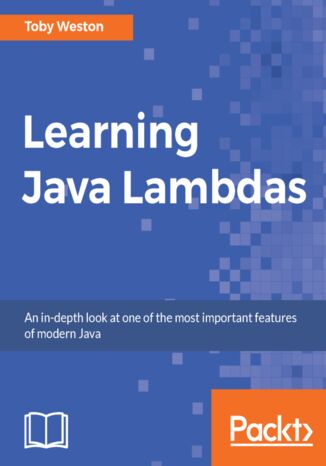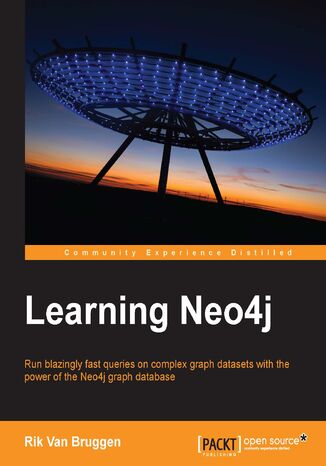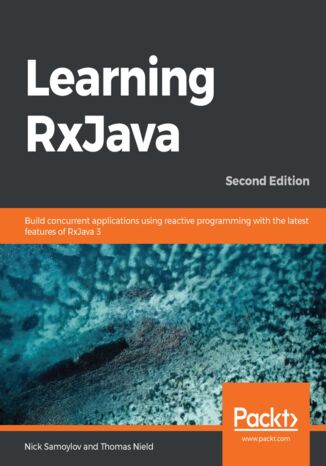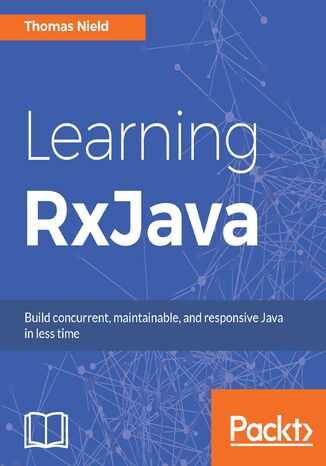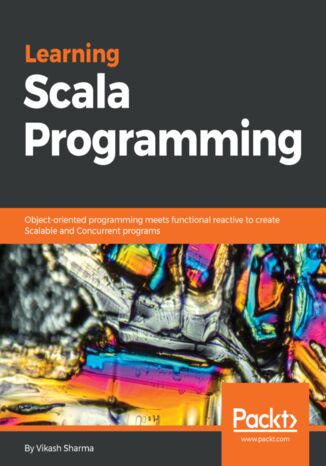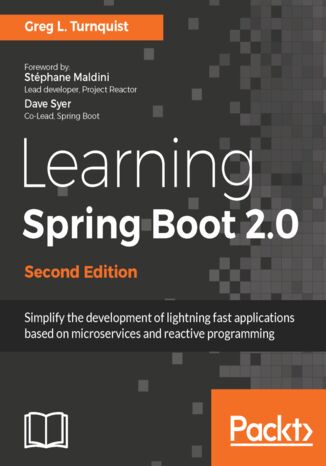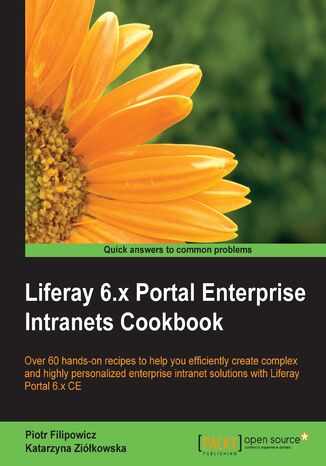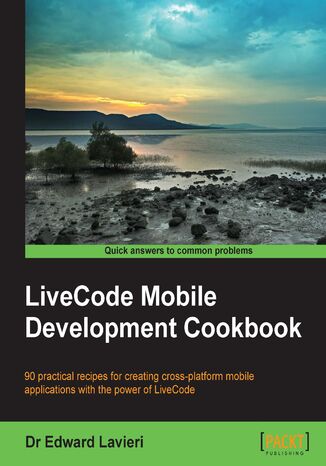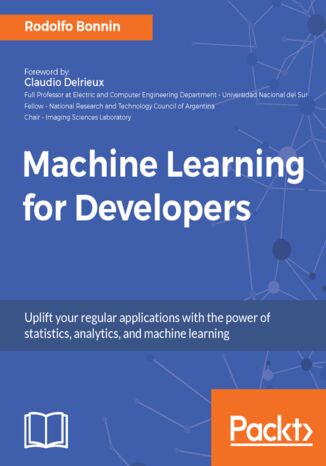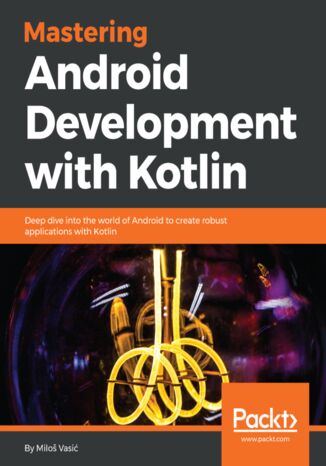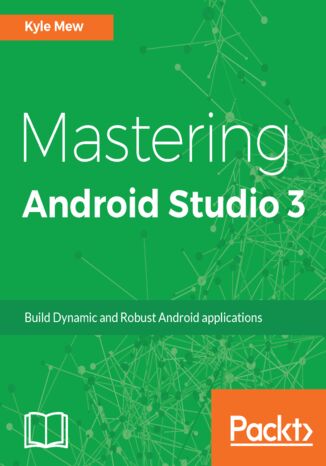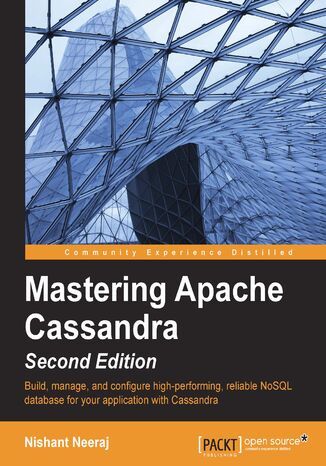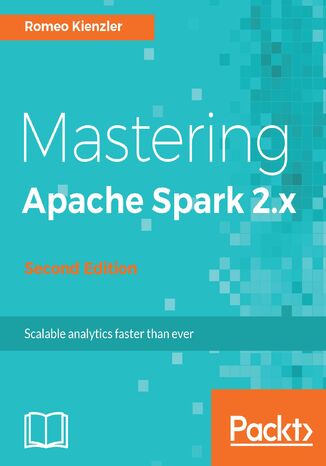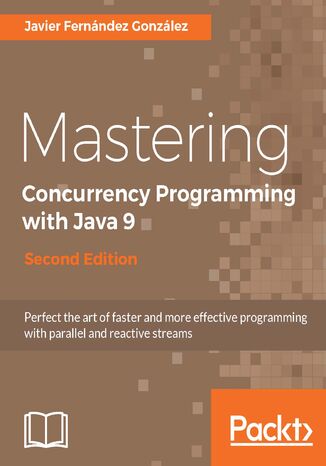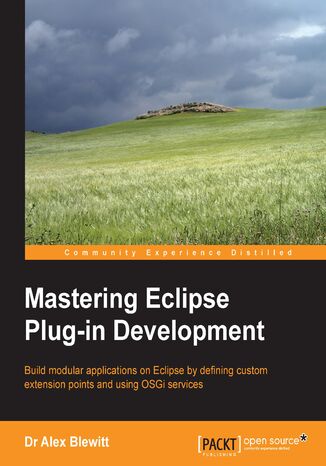Java
John Horton
Android is one of the most popular mobile operating systems presently. It uses the most popular programming language, Java, as the primary language for building apps of all types. However, this book is unlike other Android books in that it doesn’t assume that you already have Java proficiency.This new and expanded second edition of Learning Java by Building Android Games shows you how to start building Android games from scratch. The difficulty level will grow steadily as you explore key Java topics, such as variables, loops, methods, object oriented programming, and design patterns, including code and examples that are written for Java 9 and Android P. At each stage, you will put what you’ve learned into practice by developing a game. You will build games such as Minesweeper, Retro Pong, Bullet Hell, and Classic Snake and Scrolling Shooter games. In the later chapters, you will create a time-trial, open-world platform game. By the end of the book, you will not only have grasped Java and Android but will also have developed six cool games for the Android platform.
Learning Java Lambdas. An in-depth look at one of the most important features of modern Java
Toby Weston
In this short book, we take an in-depth look at lambdas in Java, and their supporting features. The book covers essential topics, such as functional interfaces and type inference, and the key differences between lambdas and closures. You will learn about the background to functional programming and lambdas, before moving on to understanding the basic syntax of lambdas and what differentiates these anonymous functions from standard anonymous classes. Lastly, you'll learn how to invoke lambdas and look at the bytecode generated.After reading this book, you'll understand lambdas in depth, their background, syntax, implementation details, and how and when to use them. You'll also have a clear knowledge of the difference between functions and classes, and why that's relevant to lambdas. This knowledge will enable you to appreciate the improvements to type inference that drive a lot of the new features in modern Java, and will increase your understanding of method references and scoping.
Rik Van Bruggen
Neo4j is the world's leading graph database and offers users a radical new way of dealing with connected data. This book has been created to help you get to grips with it, providing you with an accessible route through a tool built to contend with the complexity of modern data. Learn the fundamental concepts behind Neo4j, and put them into practice by following the featured examples and use cases that demonstrate how to apply your knowledge to real problems.Starting with a brief introduction to graph theory, this book will show you the advantages of using graph databases. Following on from that, you will be introduced to Neo4j and you will be shown how to install it on various operating systems. You will then be shown how you can model and import your data into Neo4j.This book has two use case examples that will show you how to model and implement a graph in Neo4j by analyzing a user case, and analyze the impact a change has on a process or a system. You will also gain an insight into graph visualization options and discover external sources where you can learn more about this exciting and popular graph database.
Nick Samoylov, Thomas Nield
RxJava is not just a popular library for building asynchronous and event-based applications; it also enables you to create a cleaner and more readable code base. In this book, you’ll cover the core fundamentals of reactive programming and learn how to design and implement reactive libraries and applications.Learning RxJava will help you understand how reactive programming works and guide you in writing your first example in reactive code. You’ll get to grips with the workings of Observable and Subscriber, and see how they are used in different contexts using real-world use cases. The book will also take you through multicasting and caching to help prevent redundant work with multiple Observers. You’ll then learn how to create your own RxJava operators by reusing reactive logic. As you advance, you’ll explore effective tools and libraries to test and debug RxJava code. Finally, you’ll delve into RxAndroid extensions and use Kotlin features to streamline your Android apps.By the end of this book, you'll become proficient in writing reactive code in Java and Kotlin to build concurrent applications, including Android applications.
Learning RxJava. Reactive, Concurrent, and responsive applications
Thomas Nield
RxJava is a library for composing asynchronous and event-based programs using Observable sequences for the JVM, allowing developers to build robust applications in less time.Learning RxJava addresses all the fundamentals of reactive programming to help readers write reactive code, as well as teach them an effective approach to designing and implementing reactive libraries and applications. Starting with a brief introduction to reactive programming concepts, there is an overview of Observables and Observers, the core components of RxJava, and how to combine different streams of data and events together. You will also learn simpler ways to achieve concurrency and remain highly performant, with no need for synchronization. Later on, we will leverage backpressure and other strategies to cope with rapidly-producing sources to prevent bottlenecks in your application. After covering custom operators, testing, and debugging, the book dives into hands-on examples using RxJava on Android as well as Kotlin.
Vikash Sharma
Scala is a general-purpose programming language that supports both functional and object-oriented programming paradigms. Due to its concise design and versatility, Scala's applications have been extended to a wide variety of fields such as data science and cluster computing. You will learn to write highly scalable, concurrent, and testable programs to meet everyday software requirements.We will begin by understanding the language basics, syntax, core data types, literals, variables, and more. From here you will be introduced to data structures with Scala and you will learn to work with higher-order functions. Scala's powerful collections framework will help you get the best out of immutable data structures and utilize them effectively. You will then be introduced to concepts such as pattern matching, case classes, and functional programming features. From here, you will learn to work with Scala's object-oriented features. Going forward, you will learn about asynchronous and reactive programming with Scala, where you will be introduced to the Akka framework. Finally, you will learn the interoperability of Scala and Java.After reading this book, you'll be well versed with this language and its features, and you will be able to write scalable, concurrent, and reactive programs in Scala.
Greg L. Turnquist
Spring Boot provides a variety of features that address today's business needs along with today's scalable requirements. In this book, you will learn how to leverage powerful databases and Spring Boot's state-of-the-art WebFlux framework. This practical guide will help you get up and running with all the latest features of Spring Boot, especially the new Reactor-based toolkit.The book starts off by helping you build a simple app, then shows you how to bundle and deploy it to the cloud. From here, we take you through reactive programming, showing you how to interact with controllers and templates and handle data access. Once you're done, you can start writing unit tests, slice tests, embedded container tests, and even autoconfiguration tests.We go into detail about developer tools, AMQP messaging, WebSockets, security, and deployment. You will learn how to secure your application using both routes and method-based rules. By the end of the book, you'll have built a social media platform from which to apply the lessons you have learned to any problem. If you want a good understanding of building scalable applications using the core functionality of Spring Boot, this is the book for you.
Piotr Filipowicz, Katarzyna B Ziolkowska, Katarzyna Zió?Çkowska,...
Rodolfo Bonnin
Most of us have heard about the term Machine Learning, but surprisingly the question frequently asked by developers across the globe is, “How do I get started in Machine Learning?”. One reason could be attributed to the vastness of the subject area because people often get overwhelmed by the abstractness of ML and terms such as regression, supervised learning, probability density function, and so on. This book is a systematic guide teaching you how to implement various Machine Learning techniques and their day-to-day application and development. You will start with the very basics of data and mathematical models in easy-to-follow language that you are familiar with; you will feel at home while implementing the examples. The book will introduce you to various libraries and frameworks used in the world of Machine Learning, and then, without wasting any time, you will get to the point and implement Regression, Clustering, classification, Neural networks, and more with fun examples. As you get to grips with the techniques, you’ll learn to implement those concepts to solve real-world scenarios for ML applications such as image analysis, Natural Language processing, and anomaly detections of time series data. By the end of the book, you will have learned various ML techniques to develop more efficient and intelligent applications.
Miloš Vasić
Kotlin is a programming language intended to be a better Java, and it's designed to be usable and readable across large teams with different levels of knowledge. As a language, it helps developers build amazing Android applications in an easy and effective way.This book begins by giving you a strong grasp of Kotlin's features in the context of Android development and its APIs. Moving on, you'll take steps towards building stunning applications for Android. The book will show you how to set up the environment, and the difficulty level will grow steadily with the applications covered in the upcoming chapters.Later on, the book will introduce you to the Android Studio IDE, which plays an integral role in Android development. We'll use Kotlin's basic programming concepts such as functions, lambdas, properties, object-oriented code, safety aspects, type parameterization, testing, and concurrency, which will guide you through writing Kotlin code in production. We'll also show you how to integrate Kotlininto any existing Android project.
Mastering Android Studio 3. Build Dynamic and Robust Android applications
Kyle Mew
Android Studio is an Integrated Development Environment (IDE) designed for developing Android apps. As with most development processes, Android keeps resources and logic nicely separated, and so this book covers the management of imagery and other resources, and the development and testing tools provided by the IDE.After introducing the software, the book moves straight into UI development using the sophisticated, WYSIWYG layout editor and XML code to design and test complex interfaces for a wide variety of screen configurations.With activity design covered, the book continues to guide the reader through application logic development, exploring the latest APIs provided by the SDK. Each topic will be demonstrated by working code samples that can be run on a device or emulator.One of Android Studio's greatest features is the large number of third-party plugins available for it, and throughout the book we will be exploring the most useful of these, along with samples and libraries that can be found on GitHub.The final module of the book deals with the final stages of development: building and distribution. The book concludes by taking the reader through the registration and publication processes required by Google. By the time you have finished the book, you will be able to build faster, smoother, and error-free Android applications, in less time and with fewer complications than you ever thought possible.
Romeo Kienzler
Apache Spark is an in-memory, cluster-based Big Data processing system that provides a wide range of functionalities such as graph processing, machine learning, stream processing, and more. This book will take your knowledge of Apache Spark to the next level by teaching you how to expand Spark’s functionality and build your data flows and machine/deep learning programs on top of the platform.The book starts with a quick overview of the Apache Spark ecosystem, and introduces you to the new features and capabilities in Apache Spark 2.x. You will then work with the different modules in Apache Spark such as interactive querying with Spark SQL, using DataFrames and DataSets effectively, streaming analytics with Spark Streaming, and performing machine learning and deep learning on Spark using MLlib and external tools such as H20 and Deeplearning4j. The book also contains chapters on efficient graph processing, memory management and using Apache Spark on the cloud.By the end of this book, you will have all the necessary information to master Apache Spark, and use it efficiently for Big Data processing and analytics.
Javier Fernández González
Concurrency programming allows several large tasks to be divided into smaller sub-tasks, which are further processed as individual tasks that run in parallel. Java 9 includes a comprehensive API with lots of ready-to-use components for easily implementing powerful concurrency applications, but with high flexibility so you can adapt these components to your needs.The book starts with a full description of the design principles of concurrent applications and explains how to parallelize a sequential algorithm. You will then be introduced to Threads and Runnables, which are an integral part of Java 9's concurrency API. You will see how to use all the components of the Java concurrency API, from the basics to the most advanced techniques, and will implement them in powerful real-world concurrency applications.The book ends with a detailed description of the tools and techniques you can use to test a concurrent Java application, along with a brief insight into other concurrency mechanisms in JVM.

